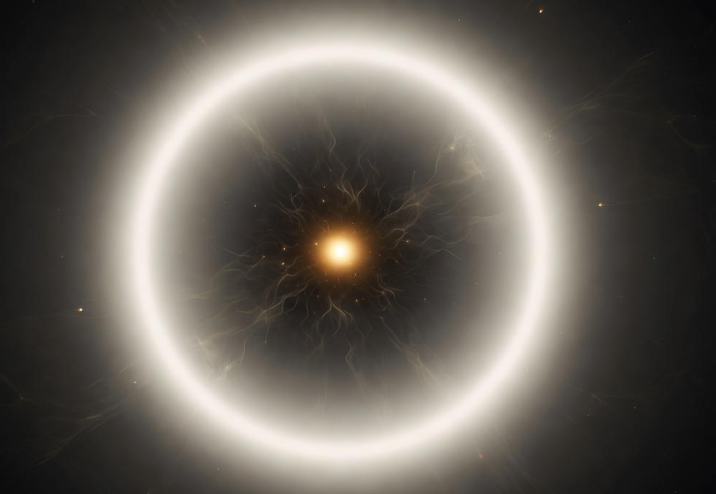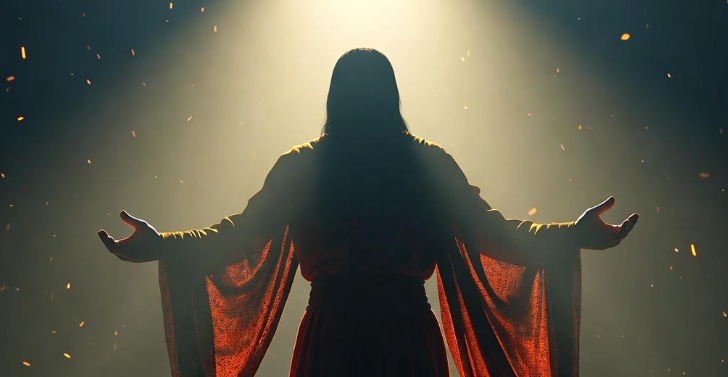From the dawn of time, humans have gathered around fires, danced beneath the moon, whispered prayers, and created small actions filled with deep meaning. These acts, which we now call rituals, have shaped civilizations, bonded communities, and even helped us understand the mysteries of life and death. But what’s so special about rituals? Why have humans, across thousands of years and continents, felt the need to repeat symbolic actions — from lighting candles to shaking hands? 🤔
Let’s explore the hidden power behind rituals, and why they continue to define who we are — even in our modern, digital world.
Rituals: More Than Just Habits
A habit is brushing your teeth every morning. A ritual, on the other hand, turns that same act into something meaningful — maybe it’s taking a moment to feel grateful for a new day. Rituals are habits with soul.
They carry emotion, memory, and intention. For example, when a soldier salutes, it’s not just a gesture. It’s a ritual built on respect, loyalty, and unity. Similarly, a family dinner prayer isn’t just about food — it’s about connection and gratitude.
| Aspect | Habit | Ritual |
|---|---|---|
| Meaning | Practical | Symbolic |
| Emotion | Minimal | Deeply emotional |
| Frequency | Repetitive | Often linked to occasions |
| Purpose | Efficiency | Connection, reflection, unity |
So in a way, rituals are the glue holding together our emotional and social world.
Ancient Origins of Rituals
Long before written language or formal religion, ancient humans used rituals to make sense of life. Archaeologists have found evidence of burial rites dating back over 100,000 years — suggesting even early humans honored their dead. This shows that rituals may have been one of the first signs of conscious thought.
Imagine a group of early humans gathered in a cave. One of them passes away. The group covers the body with flowers and stones — not just for protection, but for meaning. This was humanity’s first way of saying, we remember, we care, we understand life and death.
Fire ceremonies, dances, or markings on rocks all served one purpose — to bring people together and connect them to something bigger than themselves. 🔥
Rituals as the Foundation of Culture
Every culture, no matter how isolated, has rituals. From marriage ceremonies in India to tea ceremonies in Japan — each reflects a society’s values and beliefs. These rituals are like invisible threads weaving the fabric of humanity.
Think about it: without rituals, there would be no culture, no shared identity. Language itself evolved partly through ritual — through chants, songs, and repeated sounds. Over time, rituals turned into traditions, and traditions became the pillars of civilization.
They gave structure to life — when to celebrate, when to mourn, when to plant crops, and when to rest.
The Psychology Behind Rituals
Modern science has started to uncover what ancient people already knew — rituals have real power over the mind.
According to psychologists, performing rituals can:
-
Reduce anxiety and stress
-
Create a sense of control during uncertainty
-
Strengthen relationships and community bonds
-
Boost focus and motivation
For example, athletes often follow personal rituals before a big game — tying their shoes a certain way or listening to a specific song. These acts don’t magically improve performance, but they calm the mind and prepare the body. 🧠
Similarly, even small daily rituals like morning coffee or journaling help us feel grounded. They remind us of who we are and give rhythm to our days.
Religious and Spiritual Rituals
From ancient Egyptian temple offerings to modern-day prayers in mosques, churches, and temples, religious rituals have guided humanity’s moral and spiritual compass.
But beyond religion, rituals serve a psychological need — the need to feel connected to something eternal. Lighting a candle, bowing, or chanting all trigger emotional and neurological responses that deepen feelings of peace and purpose.
Even people who don’t follow a religion often create personal spiritual rituals — meditating, manifesting, or simply walking in nature. These acts are not about dogma, but about finding meaning. 🌿
Rituals in Modern Life
We often think rituals belong only to the past. But they’re alive everywhere around us — in sports, politics, entertainment, and even technology.
Consider these examples:
-
The national anthem before a football match 🏈
-
Birthday candles and wishes 🎂
-
Graduation cap toss 🎓
-
The morning “scroll” on social media (yes, even that can feel ritualistic)
Each of these moments creates connection and identity. When people cheer together or share a moment of silence, they feel part of a larger story.
Even brands and corporations use rituals — think of how Apple launches its products with the same signature “One more thing” line. It builds anticipation, belonging, and culture.
The Social Power of Rituals
One of the most hidden powers of rituals is how they shape society. They bring strangers together and turn individuals into communities.
For instance, weddings unite families; national holidays unite nations. In times of tragedy, collective rituals — like candlelight vigils or moments of silence — help people process grief and show solidarity.
Sociologist Émile Durkheim described this as collective effervescence — a shared emotional energy that arises when people come together for a common purpose. You’ve probably felt it too — maybe at a concert, a protest, or a religious gathering.
That “goosebumps” feeling when everyone chants or sings together? That’s the power of ritual in action. ✨

Rituals as Tools of Transformation
Rituals are not just about repetition — they’re about transformation. They mark the passage of time and the milestones of life.
Birth, coming of age, marriage, death — all are moments wrapped in ritual. They help people let go of one phase and step into another with clarity.
Even in therapy or healing, rituals play an important role. Burning a letter, writing affirmations, or performing cleansing ceremonies are symbolic ways to release pain or begin anew.
When we perform a ritual, our brain links physical action with emotional change — creating a bridge between the visible and invisible parts of our life.
Rituals and the Human Brain
Neuroscience has revealed something fascinating: our brains are wired for ritual.
When we perform repetitive, meaningful acts:
-
Dopamine (the feel-good hormone) is released.
-
Cortisol (the stress hormone) decreases.
-
Brain regions linked to memory and empathy light up.
This means rituals literally reshape how we feel and connect. It’s not superstition — it’s biology.
That’s why rituals are so powerful in healing from trauma, maintaining discipline, or achieving goals. The structure gives comfort, while the meaning gives motivation.
How Modern Life is Losing Its Rituals
In the rush of modern living, many of our ancient rituals are fading. Fewer families eat together. Many celebrations are replaced by quick social media posts. People are connected online but lonely offline.
This loss has real consequences. Psychologists suggest that the absence of meaningful rituals can lead to emptiness, stress, and disconnection.
Yet, there’s hope — we can reinvent rituals for the modern age. From mindful morning routines to community volunteering, new forms of rituals are emerging to bring back depth in our fast-paced world.
Creating Your Own Modern Rituals
You don’t need an ancient temple or a religious leader to build a ritual. You can start simple — and make it personal.
Here are some ideas:
✅ Write a gratitude note every night.
✅ Light a candle before you start work — set your intention.
✅ Take a mindful walk after sunset.
✅ Create a “tech-free” dinner once a week.
✅ Celebrate small wins by writing them down.
The key is to make it meaningful, consistent, and connected to your inner values. Over time, these small acts turn into sacred pauses in the chaos of life.
Table: Examples of Powerful Human Rituals Through Time
| Era | Type of Ritual | Purpose |
|---|---|---|
| Stone Age | Burial rites | Honoring the dead |
| Ancient Egypt | Offerings to gods | Seeking protection and favor |
| Medieval Europe | Baptism and pilgrimage | Purification and faith |
| Indigenous Tribes | Rain dances, fire circles | Nature connection |
| Modern Times | Meditation, birthdays, national ceremonies | Emotional grounding and unity |
Why Rituals Still Matter Today
In a world obsessed with speed, rituals slow us down. They remind us that meaning doesn’t come from endless scrolling or constant busyness — it comes from mindful repetition, shared moments, and emotional depth.
They give our days rhythm and our lives purpose. Whether it’s lighting a candle for someone you love, taking a deep breath before an exam, or saying goodnight to your kids — rituals are the heartbeat of humanity. ❤️
FAQs
1. What is the main purpose of rituals in human life?
Rituals give meaning and structure to life. They help express emotions, connect people, and make ordinary actions feel sacred.
2. Are rituals only related to religion?
No. While many rituals come from religious traditions, there are countless secular rituals too — like graduation ceremonies, national holidays, or even personal routines.
3. Why do rituals make us feel calm?
Because rituals create predictability and emotional safety. They engage the brain’s reward system, which reduces anxiety and promotes relaxation.
4. Can creating new rituals improve mental health?
Absolutely. Personalized rituals can reduce stress, improve focus, and build a sense of belonging.
5. What’s the difference between a habit and a ritual?
A habit is automatic, but a ritual is intentional. A ritual turns a routine act into something meaningful and mindful.
In the End…
Rituals are the timeless language of the human spirit. They’ve guided us through joy and sorrow, connection and solitude, beginnings and endings. Though the world keeps changing, the power of rituals remains — hidden in the quiet moments that make us truly human. 🌍✨

Leave a Reply